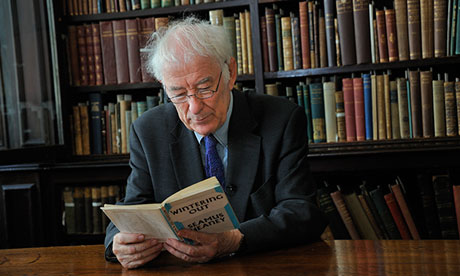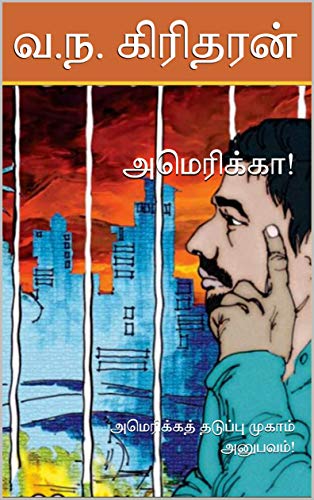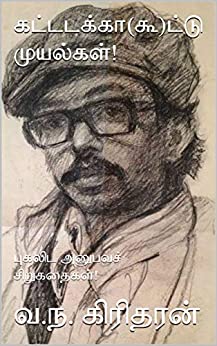 In a time of burnings and bombings Heaney used poetry to offer an alternative world; he gave example by his seriousness, his honesty, his thoughtfulness, his generosity Two years ago I invited Seamus Heaney to read at the Kilkenny arts festival in Ireland. The venue was St Canice's Cathedral, one of the most beautiful churches in Ireland. It was here almost 40 years earlier that, as a young poet, he had met Robert Lowell, who had become a friend and a mentor. Heaney admired Lowell's utter dedication to his craft, his ability to change, his absolute belief in the importance of poetry. When I suggested that Dennis O'Driscoll, who had done a book of interviews with Heaney, should introduce him on stage, Seamus said he would like that, but he would prefer it if Dennis would read as well. Dennis, he said, had done enough introducing; since he was also a poet, he should get equal billing. It was typical of Seamus's generosity. That evening, I suggested to him that he should do no signing of books after the reading, but go and have a drink with the theatre director Peter Brook, who was in Kilkenny and wanted to meet him. As we left by a side door and walked away from the church, he sighed and said that all his life after readings when everyone else was free to walk out into the world, he would spent an hour or more signing books and meeting people. He was the most tactful and careful and scrupulous of men. He used a deep-rooted conscientiousness in his work, but it also came across every time you met him. He had a way of holding back, watching every word, weighing the moment. In his public readings he had a real command; privately, he was almost shy, always thoughtful.
In a time of burnings and bombings Heaney used poetry to offer an alternative world; he gave example by his seriousness, his honesty, his thoughtfulness, his generosity Two years ago I invited Seamus Heaney to read at the Kilkenny arts festival in Ireland. The venue was St Canice's Cathedral, one of the most beautiful churches in Ireland. It was here almost 40 years earlier that, as a young poet, he had met Robert Lowell, who had become a friend and a mentor. Heaney admired Lowell's utter dedication to his craft, his ability to change, his absolute belief in the importance of poetry. When I suggested that Dennis O'Driscoll, who had done a book of interviews with Heaney, should introduce him on stage, Seamus said he would like that, but he would prefer it if Dennis would read as well. Dennis, he said, had done enough introducing; since he was also a poet, he should get equal billing. It was typical of Seamus's generosity. That evening, I suggested to him that he should do no signing of books after the reading, but go and have a drink with the theatre director Peter Brook, who was in Kilkenny and wanted to meet him. As we left by a side door and walked away from the church, he sighed and said that all his life after readings when everyone else was free to walk out into the world, he would spent an hour or more signing books and meeting people. He was the most tactful and careful and scrupulous of men. He used a deep-rooted conscientiousness in his work, but it also came across every time you met him. He had a way of holding back, watching every word, weighing the moment. In his public readings he had a real command; privately, he was almost shy, always thoughtful.
That summer's evening, I sensed that he was enjoying a sort of freedom which was apparent in his work after the volume Seeing Things in 1991. He played a seriousness and a responsibility against an urge to loosen his tone without slackening the care he took with every phrase; he felt easier about celebrating things, allowing the miraculous into his work and a sort of lightness into his cadences. At first he felt guilty about not staying behind to sign books and satisfy other people's needs, but then he smiled and walked with a casual stride, seeming to enjoy the dwindling summer light, the freedom, the prospect of good company.
He remained a northerner in the south of Ireland. Even though he lived in Wicklow and Dublin for 40 years, he was a citizen of south Derry and then of the world of poetry. What happened in the north weighed on him. In a time of burnings and bombings he used poetry to offer an alternative world; he gave example by his seriousness, his honesty, the tact in his phrasing, the care with language, the thoughtfulness, the scrupulousness.
He carried his fame lightly, easily. He preferred shadow to light; he preferred the half-said, careful, ambiguous remark to the big statement; he liked the slow smile rather than the easy laugh. He enjoyed company, but I always felt he had one eye on the door, and would be happy when the night was over and he could go home.
For his readers, his books were events in our lives, monuments. All of us remember reading the poems in North, say, for the first time in 1975, or reading the Glanmore sonnets which appeared in his book Field Work in 1979. He was not merely a central figure in the literary life of Ireland, but in its emotional life, in its dream life, in its real life. In his last book, Human Chain, published in 2010, he wrote about growing older and weaker with a shivering honesty and grace. It is hard to come to terms now with the idea that there will be no more such books.
Courtesy: http://www.theguardian.com/books/2013/aug/30/seamus-heaney-books-poetry-colm-toibin
-The Guardian, Friday 30 August 2013 -




